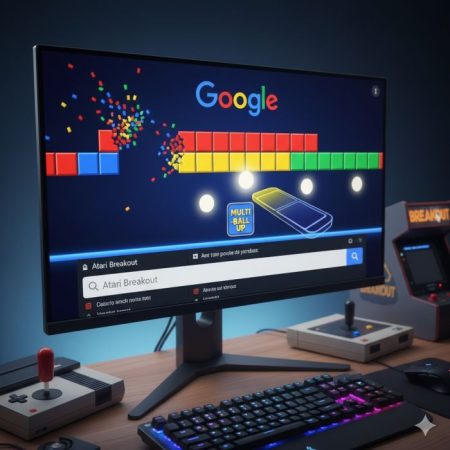Most of us take our safety for granted while operating a vehicle. In fact, it’s such a normal part of our lives that we hardly have to focus on what we’re doing. In many cases, we’ll get to work or come home not being able to remember most of the drive.
However, it’s important not to become too complacent while driving, particularly at night. Nighttime driving presents risks and dangers you don’t have to worry about during the day.
Naturally, the dark impairs our vision, even with proper headlights. As such, you need to take some precautions. Keep reading for a quick guide on safe nighttime driving.
- Drive Defensively
First, you should always be a defensive driver. This is a basic rule of operating a vehicle.
Keep your distance while following other vehicles, use your turn signal to alert other motorists to turns and lane changes, and pay attention to the road. This is especially important while driving late at night.
Remember, you and the other drivers on the road will have impaired vision. You may not cause a wreck, but other drivers can.
Lastly, driving late at night can be peaceful, as fewer people are on the road. However, this also makes it easy to get drowsy and start nodding off behind the wheel.
Avoid driving drowsy at all costs. Make sure you’re well-rested, drink coffee, drive with the windows down, pull over for a nap, etc. Falling asleep behind the wheel can have dire consequences.
- Correct Uneven, Tilted, or Hazy Headlights
One of the most important safety tips for driving at night is to ensure your headlights are working properly. Even if you have brand new bulbs, they won’t do you any good if your headlights are pointed down, up, or to the side. Some cars leave the factory with misaligned lights.
Additionally, old headlight covers tend to get hazy or foggy over time. This results in less illumination. To remediate this issue, you can buff out the fogging effect or get the headlight covers replaced.
- Be Aware of Nocturnal Animals
Learning how to drive at night safely means being prepared for the additional risks. For example, a lot of animals come out at night because they are nocturnal. Moreover, they will also be more difficult to see due to the lack of light.
Pay attention to the road and look for glowing eyes reflecting off your headlights. You should also keep an eye on the sides of the road in case there are any deer or other wildlife about to cross. This can prevent sudden surprises and severe accidents during nighttime driving.
- Use Your Brights Conscientiously
While it may seem like many people have forgotten the concept of being a conscientious driver, it doesn’t mean you should too. Don’t drive offensively, recklessly, or emotionally, especially at night.
Furthermore, do your best to think of other drivers, particularly when using your brights. When you see oncoming traffic, turn your brights off so you aren’t blinding the other motorists.
Most likely, you’ve been on the other side when an oncoming vehicle leaves its brights on. Not only is it inconsiderate, but it can also be dangerous.
- Don’t Forget Your Glasses or Contact Lenses
At some point in their lives, nearly 40% of Americans end up needing glasses. If you fall into that category, neglecting your glasses or contact lenses at night can have devastating consequences.
Most people that have some form of vision impairment experience exacerbated symptoms at night. Bright lights mixed with the inherent dark of nighttime driving can cause your vision to blur. As a result, it will be harder for you to see other motorists, pedestrians, wildlife, obstacles, etc.
If you’re involved in an accident where the other motorist is vision impaired and wasn’t wearing the proper corrective lenses, you might be able to sue them for damages due to their negligence. Contact Kemp, Ruge & Green Law Group to talk to Tampa Bay car accident lawyers.
- Turn Down the Illumination of Your Instrument Panel
Even with bright headlights, nighttime driving can be difficult. It can be incredibly difficult to see things, especially when driving on a road without streetlamps or any other form of light.
One way to protect your eyes and improve your vision on the road is by turning down the illumination of your instrument panel. You don’t need glaring lights in your face.
It will make it harder for your eyes to adjust to the road. Every time you glance down at your speed, the radio, or the time, your vision will be temporarily impaired. By turning down the illumination, you can mitigate the effects.
- Keep Your Mirrors and Windows Clean
Glare is one of the biggest hassles of nighttime driving. When you drive under streetlamps and pass other drivers, every speck of dirt and grime on your windows becomes illuminated.
Based on how dirty your windows are, this can make it exceedingly challenging to see. If your windshield is filthy, your vision will be significantly impaired any time light hits it.
These brief moments of blindness can result in accidents. Make sure your windows are clean and clear before setting off for a nighttime drive. This is especially important if you’ll be driving in town where there will be constant lights bouncing off your windshield.
Also Read: The Safest Cars for 2021
- Avoid Eye Contact With Oncoming Headlights
Finally, while nighttime driving, you must protect your eyesight. We already talked about wearing glasses, using your brights considerately, and keeping your windows clean. But what can you do about other drivers’ headlights?
To avoid being blinded by oncoming headlamps, avert your eyes to the line on the shoulder of the road. Your peripheral vision will alert you to anything directly in front of you, but you won’t blind yourself by staring straight into the oncoming lights. This tactic is very useful if an oncoming motorist leaves their brights on.
Worried About Nighttime Driving?
Do you do a lot of nighttime driving? Whether you work a late shift or do a lot of traveling, follow the safety tips for driving at night listed above to prevent unnecessary accidents. Remember to drive defensively and be considerate to other motorists. Issues like DUI Convictions and Interlock Devices also serve as important reminders of how critical it is to stay safe and responsible on the road.
And if you want more helpful tips and tricks, check out some of our other articles before you go. Our blog is full of valuable content designed to help people like you improve their lives, increase their health, and find happiness.






